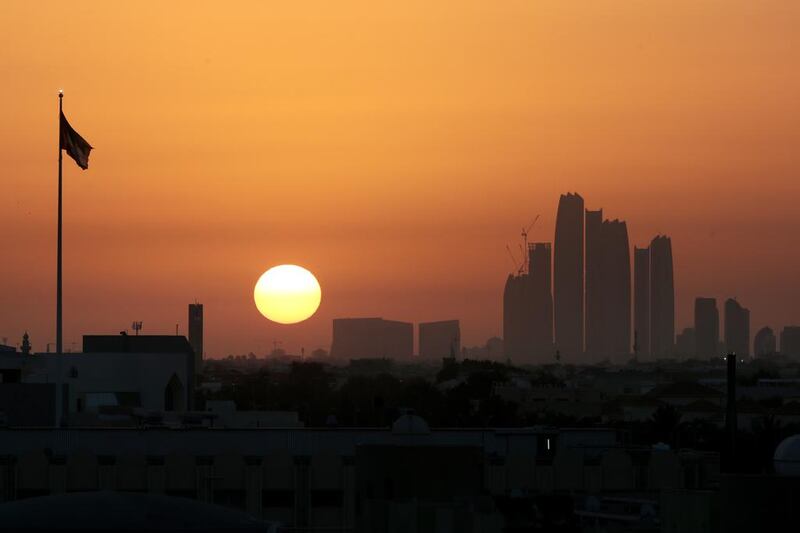On Sunday, an Iraqi friend emailed me pictures of a Christian family in Mosul, slaughtered in their home because they hadn’t fled after its takeover by the fanatics of the Islamic State and because they had refused to abandon their faith.
They are among thousands of other Iraqis, of all denominations and sects, who have died in the conflict of recent weeks. Sectarian hatreds and corrupted forms of religion, practised by individuals of the type once dubbed by the late Sheikh Zayed as “apostates from Islam”, have led to innumerable crimes against humanity.
Such crimes are not only happening in Iraq. They’re commonplace in Syria, where well over 150,000 people have died in the past three and a half years. Since the removal of Muammar Qaddafi, Libya has become the world’s latest failed state as the bloody conflicts between militias of tribal, jihadist or other origins tear the country apart.
Much of the suffering has arisen because of a complete breakdown of state institutions or because regimes challenged by non-state forces have resorted to barbaric depths in their efforts to retain control.
As we have seen in recent weeks, this disregard for humanity in the region is not confined to the Arab world. The Israeli assault on Gaza – in which nearly 2,000 people, mainly civilians, including nearly 300 children, have been killed – has forced nearly half a million people to leave their homes. Members of Israel’s governing coalition advocate yet more slaughter of defenceless people and proposals for a “justified genocide” of Palestinians are put forward in the Israeli mainstream media.
The intolerable suffering of Gaza, bloodied but not broken, is typified by a slew of acts such as Sunday’s rocket attack on a UN school, described by the UN secretary general, Ban Ki-moon, as “a moral outrage and a criminal act”. As Saudi Arabia’s King Abdullah has rightly noted, these “collective massacres that have spared nobody” will lead to “a generation that rejects peace and believes only in violence”.
The specific reasons for these crimes vary from country to country. In some, affected by what the UAE’s Minister of State for Foreign Affairs, Anwar Gargash, recently described as “the frenzy of the Arab Spring and its unrealised goals”, the removal of dictatorial regimes has permitted the unleashing of long-suppressed resentments. In others, the very process of attempting to remove such regimes has led to the emergence of barbarous behaviour on both sides. An influx of fanatics from elsewhere, many clearly mentally disturbed, has contributed to the bloodletting. The consequence, according to Dr Gargash, has been “the devastation and wreckage of once-functioning states”.
In Gaza, of course, it is simply the latest stage in the evolution of a policy of dispossession, occupation and brutal oppression, now increasingly driven by overt racialism that dates back over six decades. The practices of successive Israeli governments are increasingly condemned around the world, to little avail.
In this region, the United Arab Emirates, an oasis of stability, stands out as one of the few countries that has avoided the turmoil – and, yes, the crimes against humanity – in which hundreds of thousands have died and millions have been driven from their homes, into internal exile or as refugees abroad.
That is not because there is no scope here for change. To quote Anwar Gargash again, from tweets posted last week: “The UAE is not perfect and has its shortcomings, but in our region, it stands out on the strength of its record … As a progressive/ambitious society, the UAE will continue to improve.”
The views of activists seeking change, he noted, “are important, (but) they must be in context with views of a larger population of nationals and expats” who overwhelmingly welcome and support the policy of a gradual process of change.
The UAE has been criticised because of the government’s determination to curb the clandestine activities of those who seek to replace that gradual process of change with “the frenzy of the Arab Spring”. As is now clear, the high-minded goals of many of those who set that Spring in motion have been overwhelmed by stronger parties whose agenda is one of religious, ethnic and racial strife, of bloodshed and of crimes against humanity.
Beyond those who, consciously or unconsciously, have allowed their view of the UAE to become intertwined with the agendas of foreign political and religious groups, it is little wonder that the country remains widely envied for its cultural and religious tolerance, for its social stability and for its economic progress. Long may that remain so.
Peter Hellyer is a consultant specialising in the UAE’s history and culture





